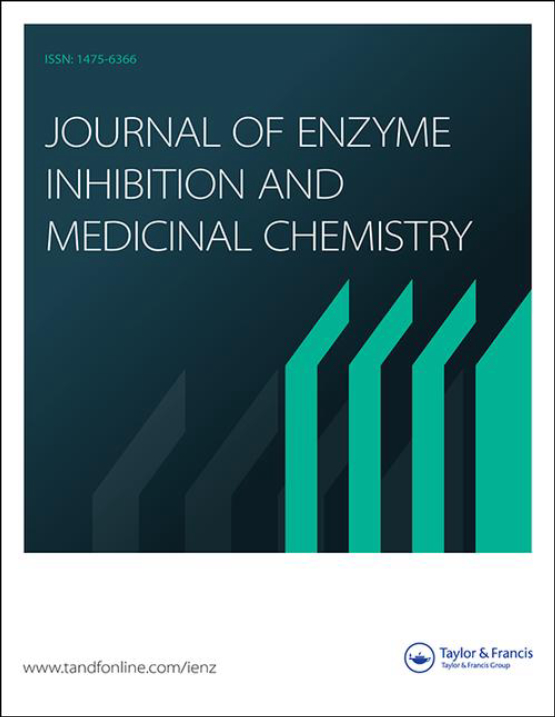Submit a Manuscript to the Journal
Journal of Enzyme Inhibition and Medicinal Chemistry
For an Article Collection on
Targeting Epigenetic Enzymes for Neurodegenerative Conditions
Manuscript deadline
30 June 2024


Article collection guest advisor(s)
Dr Christian Griñán Ferré,
University of Barcelona
[email protected]
Dr Ana Guerrero López,
University of Barcelona
[email protected]
Targeting Epigenetic Enzymes for Neurodegenerative Conditions
Neurodegenerative disorders affect 55 million people worldwide, according to the World Health Organization. Most of these pathologies share the onset of dementia. Disability caused by dementia increases dramatically with aging, and the incidence rate is doubling every five years after the age of 65. Alzheimer’s Disease (AD) is the major cause of dementia in Western countries, accounting for 60 to 80% of cases. As the average age of the population increases, the number of cases of AD is expected to be more than triple by 2050, reaching over 150 million. Although huge efforts have been made to solve the problem, current pharmacological therapies are only symptomatic, but they do not stop the progression of dementia. Altogether, the development of a treatment or cure for AD, preferably able to affect the course of the disease to prevent, or at least delay the onset of cognitive decline, represents an unmet medical, social, and economic need. AD drug development must be accelerated.
Epigenetics plays an important role in several disease pathophysiology’s and has been validated as a target for several diseases including cancer, inflammation, and neurodegenerative disorders. Furthermore, several lines of evidence suggest a role for epigenetic processes in learning and memory and cognitive disorders, including Alzheimer’s disease, Huntington’s disease, and Parkinson’s disease - identifying epigenetic alterations as a primary cause of cognitive impairment. Therefore, targeting the epigenome may represent a preventative and/or therapeutic approach for alleviating cognitive abnormalities associated with neurodegeneration. Finally, epigenetic neuropharmacology is a new and exiting field, which shows that pharmacotherapies based on epigenetic enzymes change the brain epigenome, improving the neurodegenerative events. Therefore, the main goal of this collection is to describe new neuroepigenetic targets and promising pharmacological therapies for neurodegenerative disorders.
We welcome the contribution and submission of any article and findings in the area of epigenetic neuropharmacology research.
Article types considered include:
- Research Article
- Systematic Review
- Review Article
- Mini Review
All manuscripts submitted to this Article Collection will undergo desk assessment and peer-review as part of our standard editorial process. Guest Advisors will not be involved in peer-reviewing manuscripts unless they are an existing member of the Editorial Board.
Please review the journal scope and author submission instructions prior to submitting a manuscript.
The deadline for submitting manuscripts is 30th June 2024.
Please contact Sam Zhang at [email protected] with any queries regarding this Article Collection.
Benefits of publishing open access within Taylor & Francis
Global marketing and publicity, ensuring your research reaches the people you want it to.
Article Collections bring together the latest research on hot topics from influential researchers across the globe.
Rigorous peer review for every open access article.
Rapid online publication allowing you to share your work quickly.
Looking to Publish your Research?
Find out how to publish your research open access with Taylor & Francis Group.
Choose open accessSubmission Instructions
All manuscripts submitted to this Article Collection will undergo desk assessment and peer-review as part of our standard editorial process. Guest Advisors for this collection will not be involved in peer-reviewing manuscripts unless they are an existing member of the Editorial Board. Please review the journal Aims and Scope and author submission instructions prior to submitting a manuscript.